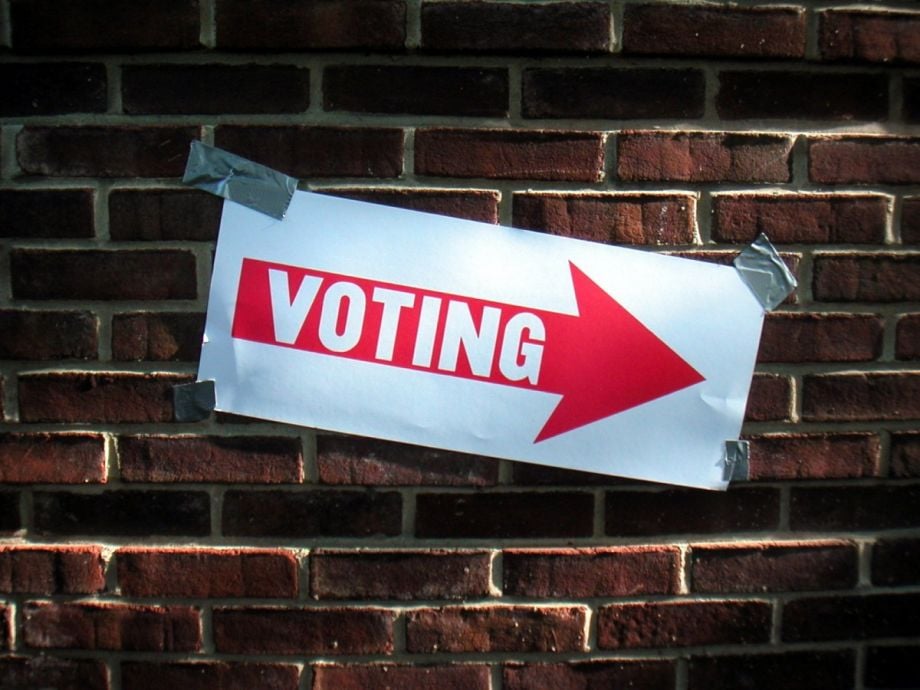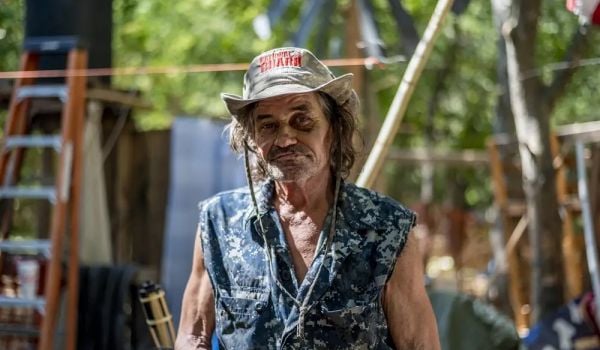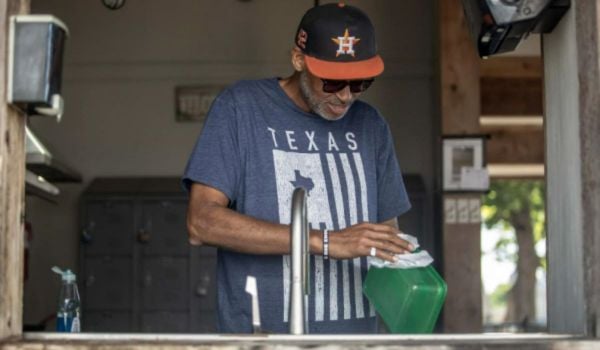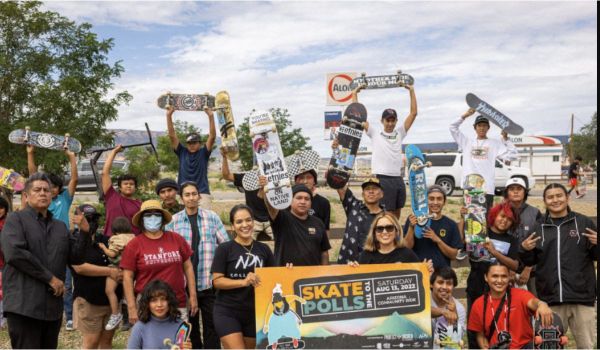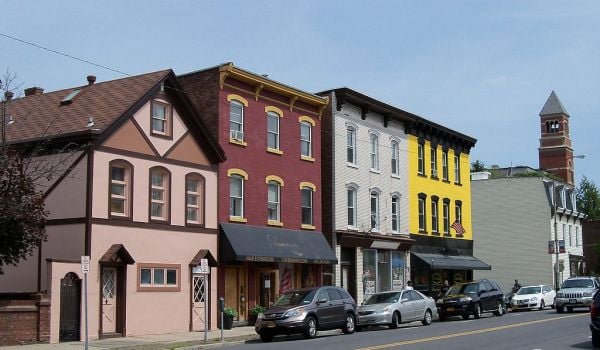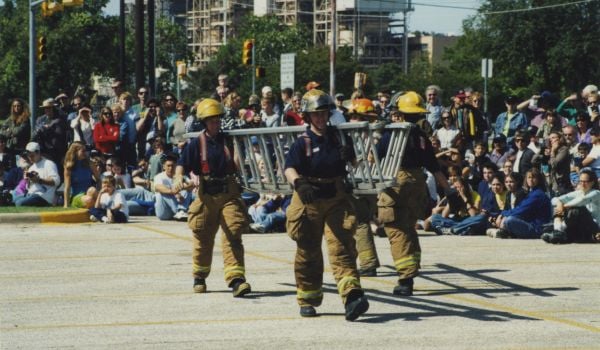What if politics wasn’t all that bad, not as rough and tumble and aggressive as it seems?
What if a candidate came to you, and asked how your issues fit into their policy agenda?
That sort of shift is what three Austin residents are seeking to create.
Liz Coufal and Nathan Ryan are the co-founders of GoodPolitics, a nonprofit targeting Millennial voters. Diana Gómez is a co-founder of La Politica, a progressive group focused on Latina empowerment and engagement. The three of them recently collaborated with local public radio station KUT to create The Elected Office Explainer , a digital guide explaining exactly what is on the ballot in Austin.
The guide, in English and Spanish, lays out the role of every position on this year’s ballot from senator to city council, emphasizing down-ballot races that may be unfamiliar to the general public. Some positions have confusing, or simply outdated, titles.
In Texas, for instance, a county judge is not a lawyer but an elected position overseeing county operations, such as the public hospital system, the district attorney, recordkeeping and elections, among other duties. Another confusing office is the three-person Railroad Commission –– which oversees oil and gas, not railroads. (The agency originated when oil was transported via railroads, thus the name. Efforts to change the name have failed.)
“There’s so much to research. When people don’t know what a county commissioner is they’re inclined to be less engaged in the important work of a county commissioners court,” Coufal says.
Texans also no longer have the option to choose candidates by party with just one option. House Bill 25, which eliminated so-called straight-ticket voting, went into effect this year. This means voters must go down the ballot and vote for each position. People may not vote further down especially if ballots are long or they are unfamiliar with the role.
“Unless you’ve had a terrific civic education, how would you know between council and Congress?” Coufal says.
Gómez, who has worked for a member of Congress and nonprofits, has been a go-to resource for friends interested in politics. She agrees with Coufal and Ryan: The jargon surrounding elected offices can turn people off.
And yet, some of GoodPolitics’ definitions are, well, a tad jargony.
Take the County Courts at Law.
“The County Courts at Law preside over Class A (up to 1 year in jail, $4,000 fine, or both) and Class B (up to 180 days in county jail, $2,000 fine) misdemeanor cases,” reads the GoodPolitics guide.
Huh?
“These positions are complex by nature. We wanted to be clear while not watering them down, while also making clear distinctions between the different offices that can be easily confused,” Coufal says. “The original job descriptions are way more jargon-y, so we chose to write summaries that showed the differences between the positions (like county attorney vs district attorney).”
Jessica Foreman, Director of Advocacy for the League of Women Voters - Austin Area, is responsible for writing the bond and ballot proposition section of the League’s voting guide. She knows how jargon is a barrier to the political process.
“We get the most questions about judicial candidates,” whose roles often are filled with jargon.
To better describe these positions, the League includes candidate questionnaires, which plainly ask candidates to explain the role’s importance to the electorate.
Coufal knows the two guides differ. GoodPolitics’s is just one of many, and meant to complement the League’s, and others, such as those created by the Community Impact Newspaper and Austin American-Statesman, the city’s daily newspaper.
The GoodPolitics guide fills its own gap, Coufal says.
Other guides are “pretty targeted toward people who are already civically engaged,” she says.
Their politically curious, tech savvy constituency need an explainer, Coufal and her colleagues learned. So they create a guide focusing on the core functions of the job. Armed with that knowledge, they can turn to other guides, like LWV’s, that ask questions of the candidates and focus on issues.
The digital guide is one of the many ways GoodPolitics and La Politica instill civic engagement.
According to a report released in February by CIRCLE, the Center for Information and Research on Civic Learning & Engagement at Tufts University, barely one in three Texans under 40 were contacted by campaigns. That’s despite the state seeing a significant increase in turnout among the same demographic.
Only 25 percent of Hispanic voters under 40 were contacted by campaigns. That’s 15 percent fewer than white voters.
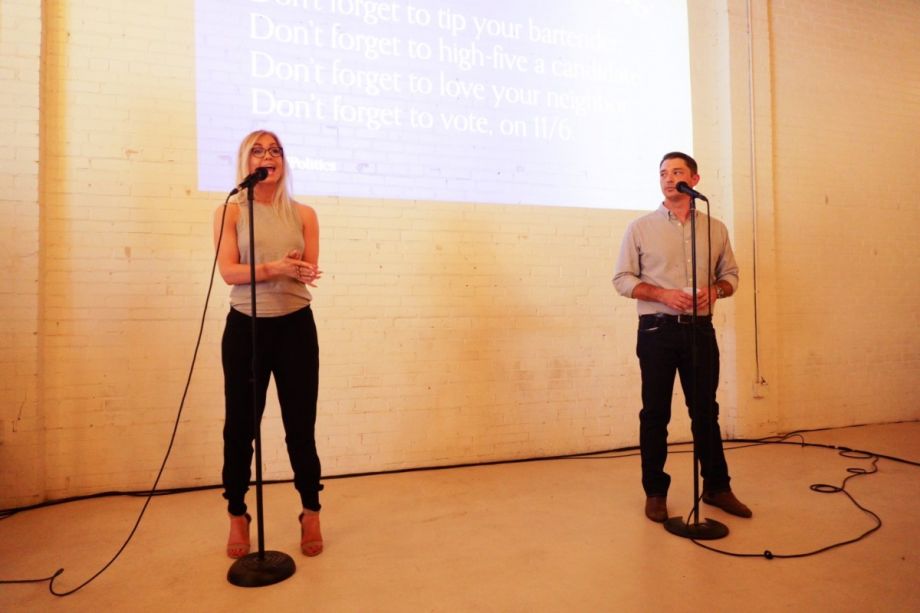
Liz Coufal and Nathan Ryan (Photo courtesy GoodPolitics)
That’s where GoodPolitics and LaPolitica insert themselves.
Before COVID-19 hit, GoodPolitics held town halls, debate watch parties and candidate meet and greets. The latter, which they billed as a “candidate farmers market,” attracted around 640 people, Ryan estimates, and somewhere between 30-40 campaigns.
Direct engagement with elected officials and candidates was key to GoodPolitics and La Politica’s success.
“So many political campaigns are waiting for you to come to them, but we bring them to you. We’re flipping the script and putting power back in the hands of voters. It’s all about us and for us,” Coufal says.
The names help, too, Ryan believes.
“’GoodPolitics’ sounds like such a misnomer—like, those words aren’t supposed to go together! But when people hear it, I think it gets them to imagine that, maybe, just maybe, it could be possible,” Ryan says.
“People generally see themselves as good people, so when we framed it like that a lot of our friends who weren’t previously politically involved got to thinking… well, what if part of the reason politics doesn’t represent my interests is because I’m not engaging to voice my perspective and experience? It’s been a lot of fun to watch some of our friends (and their friends) get involved in [get out the vote], local/state and federal issues, and work with candidates. We think it’s making our politics better,” he says.
La Politica sent a questionnaire to city council candidates asking about issues impacting people of color and lesbian, gay, bisexual and transgender people of color.
With people of color underrepresented in elected offices, they want to insert people of color into the process, and make elected officials and candidates pay attention to those issues.
While COVID-19 shut down all public events and big gatherings, they have not stopped outreach efforts. The pandemic actually sped up the voter guide rollout.
La Politica also takes personal empowerment seriously. They create dream boards with event participants, talking about their futures and how policies could hinder or help their goals if they are or not involved.
They’re also looking beyond electoral politics and into issues, too, like how climate change affects people of color.
Says Gomez, “We’re not just stopping at the ballot box.”
James Russell is a Texas-based freelance writer.

